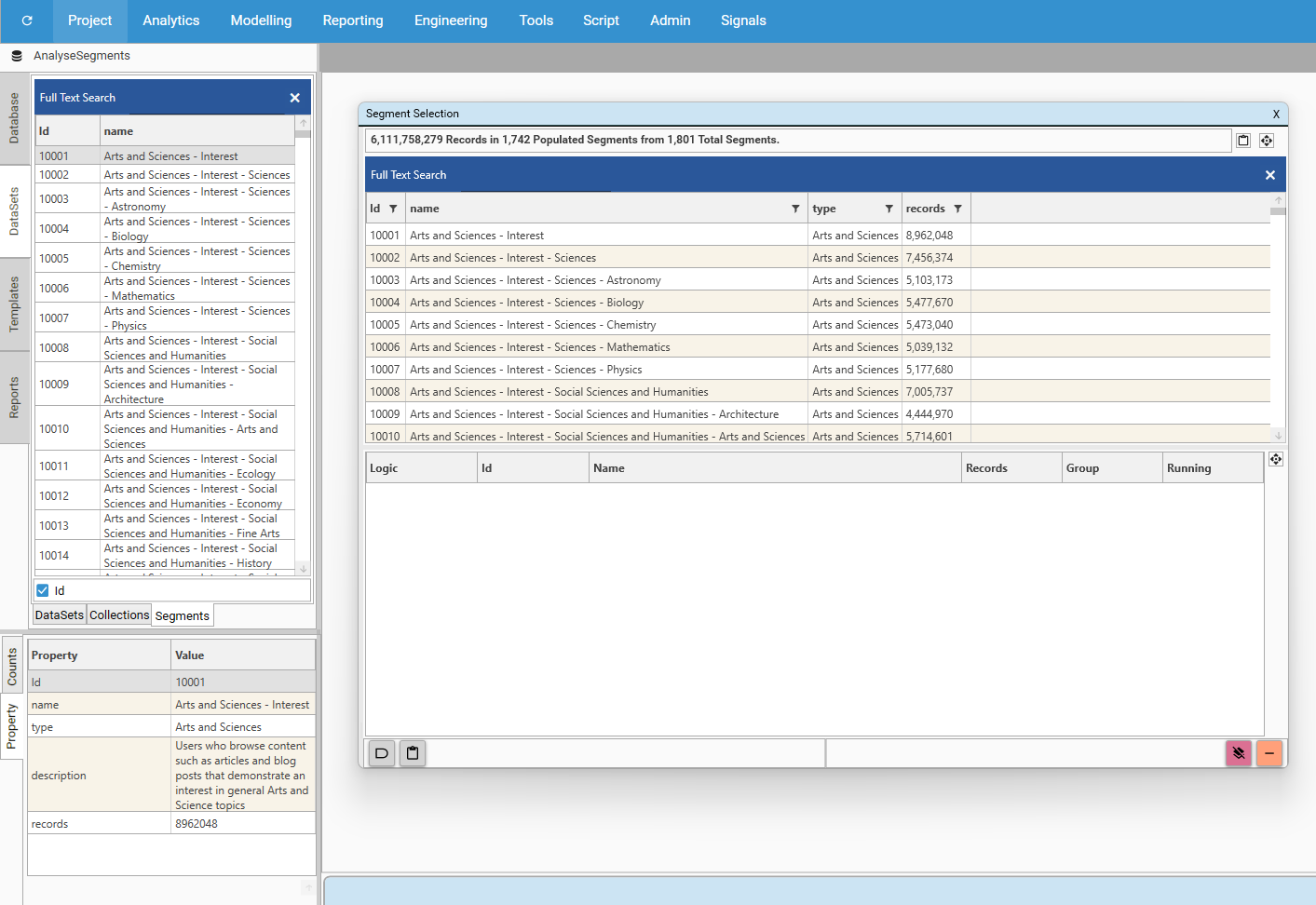Datasets
Query Counts
A Dataset is a lightweight data object used to indicate the records that are returned by a query.

Inclusion and Exclusion
Records that are in the selection are returned as 1, those which are absent are returned as 0:

Resolution Table
Each Dataset is owned by a single table, known as the resolution table, or owner table.

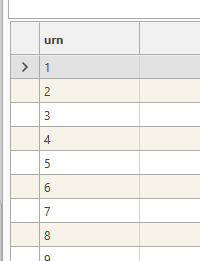
Consider the following table of 10 records:

A dataset of all records in the table has the following query:

The underlying dataset object records a 1 for every record in the query:
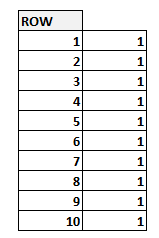
All records in the table are IN the dataset - they are included in the Y (or 1) count.
The query is then modified to only select the records that match "gender=M":

Records that do not match the query are returned as 0. The underlying dataset looks as follows:
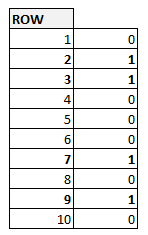

See DataSet HotBar - Functional Overview (resolve at) for a further look at how records are counted depending on the resolution table, and how datasets are combined.
Query Tree
Rather than use SQL, Datajet uses drag and drop to create no-SQL queries that are stored in a query tree:
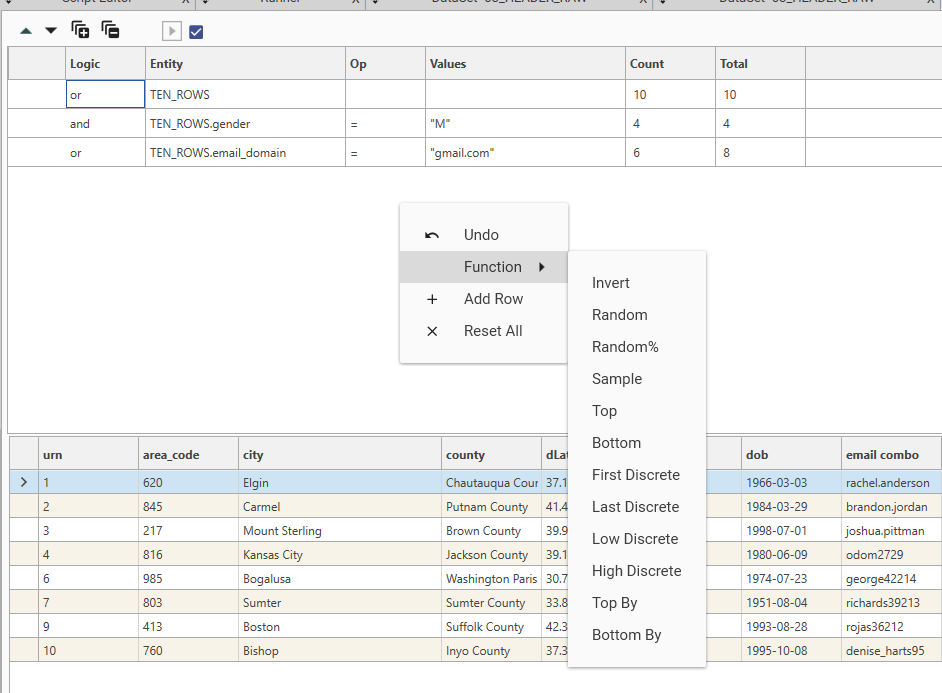
Queries are executed from top to bottom, with new queries appended to the bottom of the tree.
For more information on DataSets, see:
Dataset Collections
Dataset Collections are groups of Datasets that can be used either individually or collectively within the Desktop Application or scripting interface. Collections are not specific to a particular table, but can contain datasets from any table in the system.
Create a DataSet collection by right-clicking on the DataSets | Collections tab and choosing "Create DataSet Collection"
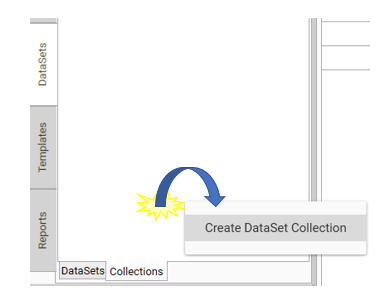
The DataSet Collection Builder will be displayed. Drag and drop datasets from anywhere in the system and add them to the collection, renaming and re-ordering as requried.
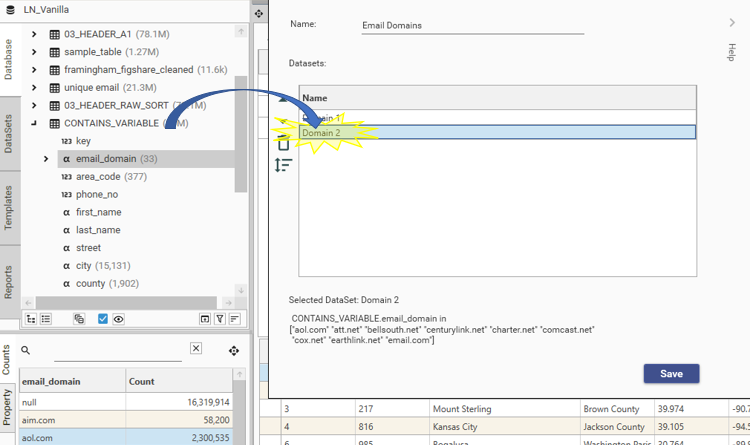
Once saved, the collection will be added to the collections tab.
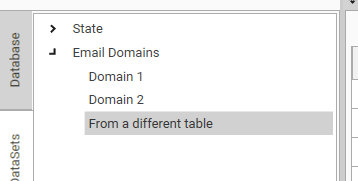
Dataset collections can be dropped onto:
- Dashboards - dashboard filters
- Multi-field Statistics - repeated categorical variables
- Profile/ Index Profile / Combined Profile - named collection or multi-column dashboard
- AnalyseSegments - Target Datasets
Dashboard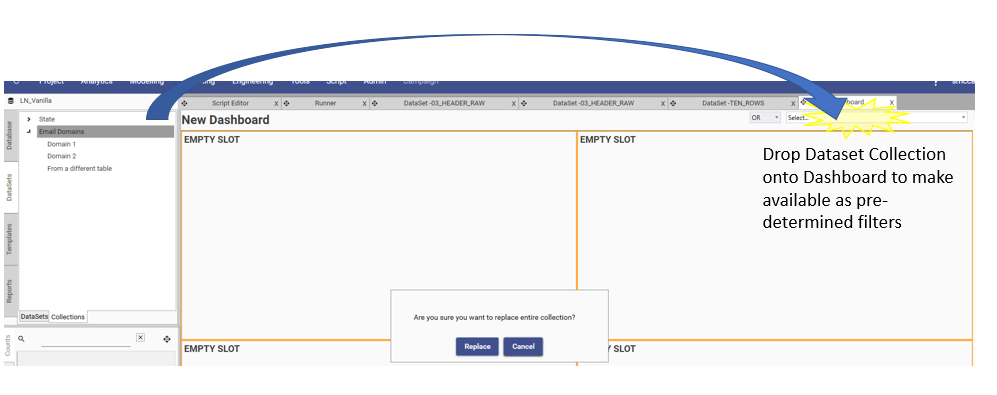
Multi-Field Statistics
 Profile
Profile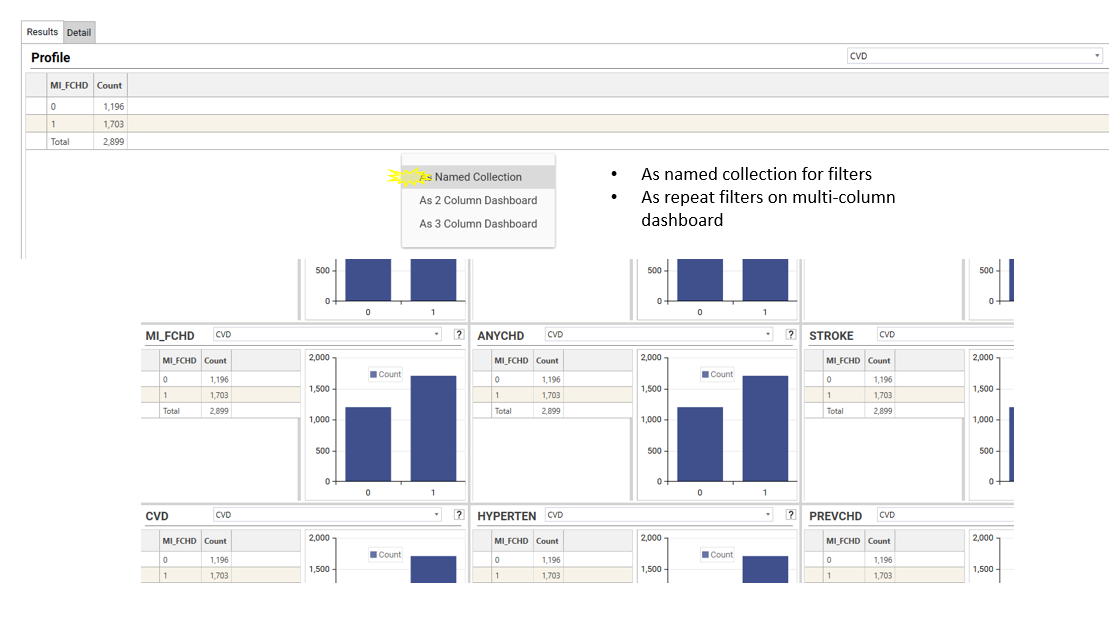
DataSet Fields
DataSets can also be stored as DataSet fields. This will store the results of the query as a field on the resolution table:
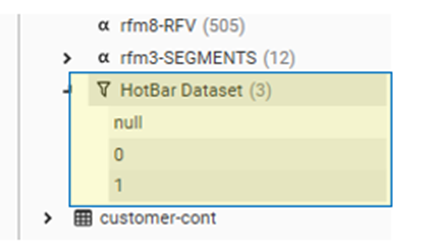
See DataSet HotBar - Functional Overview for a more detailed look at DataSets and DataSet fields.
Segment Datasets
If Signal Data is available in a project (i.e., if a DataSource that contains signal data has been injected), the segments sub-tab will be available on the dataset tab.
